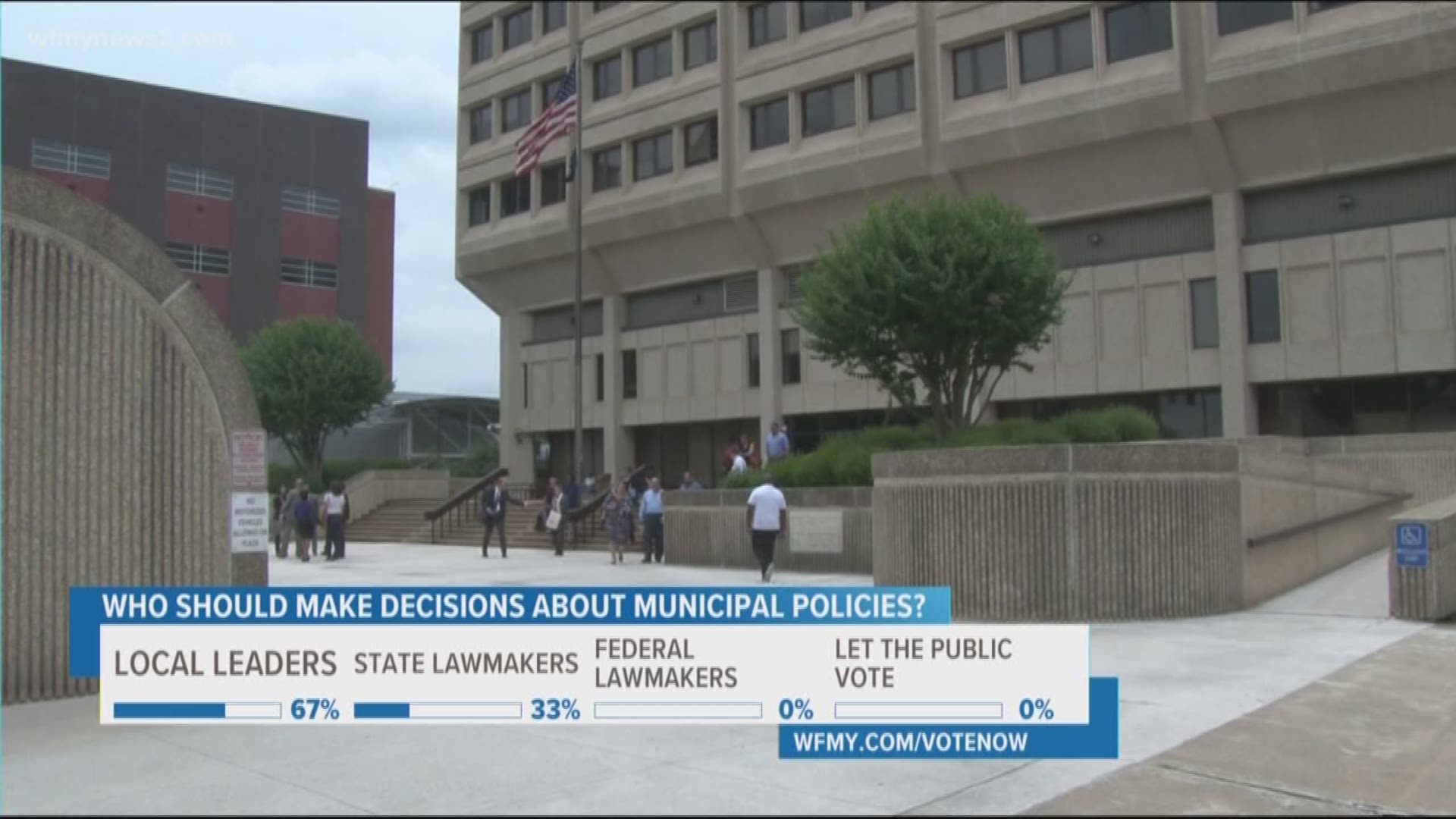WINSTON-SALEM, N.C. -- More than a year after North Carolina undid its "bathroom bill," a legal battle is simmering over a law that replaced it.
A federal judge on Monday heard arguments from transgender advocates who claim in a lawsuit that the replacement law still discriminates against the LGBT community. For their part, Republican leaders in the North Carolina General Assembly are fighting to have the lawsuit dismissed.
The replacement law HB142, passed in 2017, was intended to quell the furor that arose when the state in 2016 passed House Bill 2, which required transgender people to use restrooms in many public buildings that corresponded to their sex at birth.
The replacement law did away with that requirement, but it also spelled out who was in charge of making such bathroom rules in the first place: state lawmakers - and not local governments. The new law also prohibited local governments from enacting new nondiscrimination ordinances for workplaces, hotels and restaurants until December 2020.
The lawsuit claims the replacement law still hurts transgender people by creating ambiguity about restroom access and preventing local officials from providing clarity or passing laws to protect LGBT rights. The GOP leaders argue, however, that the new law doesn't deprive the LGBT community of legal protections and that any uncertainty over bathroom rules doesn't amount to legal harm.
The replacement law wasn't met with enthusiasm, but it appeared to be a compromise that helped dim the harsh spotlight that had been cast on the state for its handling of LGBT rights.
"It really only satisfied the people who wanted to get it off the headlines. And I think it was successful in that," said Chris Cooper, a political science professor at Western Carolina University.
After the original "bathroom bill" was enacted in 2016, company leaders halted or delayed plans to bring thousands of jobs to North Carolina in response to a boycott campaign. Major sporting events pulled out of the state.
But since the compromise last year, the state has again become an attractive location for out-of-state corporations. And the NBA, NCAA and Atlantic Coast Conference have decided to bring back championship events.
Tami Fitzgerald, executive director of the conservative N.C. Values Coalition, said her group thinks the replacement law is working and creates a business-friendly environment by giving businesses the flexibility to set their own policies. Her group, which supported H.B. 2, hopes lawmakers will extend the moratorium on new local nondiscrimination ordinances past 2020.
Further, she said, she believes most parents around the state share her concerns about privacy.
"The majority of parents want their children to be free from confronting a person of the opposite sex in their bathroom, their shower or their locker room," she said.
However, Chris Brook of the American Civil Liberties Union of North Carolina said there's "nothing hypothetical" about the harm caused by the current law, known as H.B. 142.
"There's evidence in the record that students in the public school system have been told by their schools that H.B. 142 makes it illegal for them to utilize the restroom that accords with their gender identity," said Brook, who is representing the transgender plaintiffs.
One plaintiff, Joaquin
Carcaño, was in court Monday. Carcaño is a transgender man and an employee at UNC-Chapel Hill. The lawsuit alleges that even after HB2's repeal, he can't go to the bathroom at work without fear of repercussions.
ACLU Attorney Chase Strangio argued on Carcaño's behalf Monday.
"Joaquin should be able to go to work without worrying every time he goes to the bathroom and transgender people across the state should just be able to live their lives," Strangio explains after court. "It was always a solution in search of a problem and now it's a significant problem for transgender people and that's our point. We just want them to be free from this discrimination."
Attorneys for GOP lawmakers would not comment on the case after the court hearing because it's still a pending matter, but the legal team rounded out it's argument today by calling the ACLU's lawsuit a political stunt.
Judge Thomas Schroeder is taking time to review each side's argument before making a decision on whether or not to dismiss the case. WFMY News 2 will report any updates when they become available.

